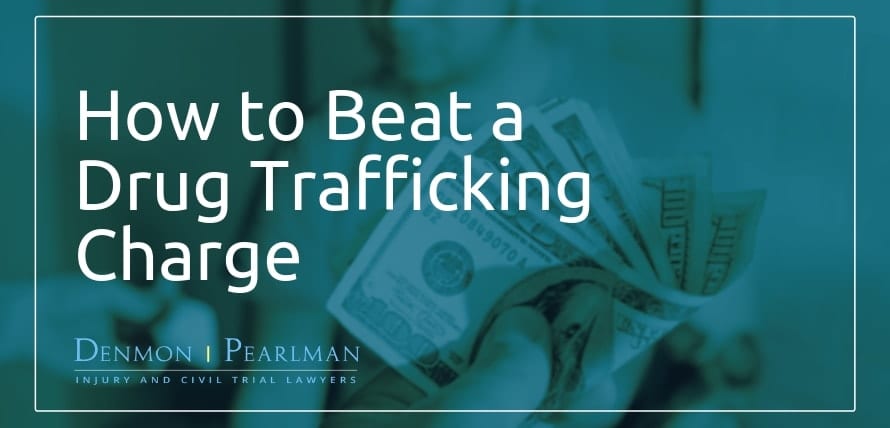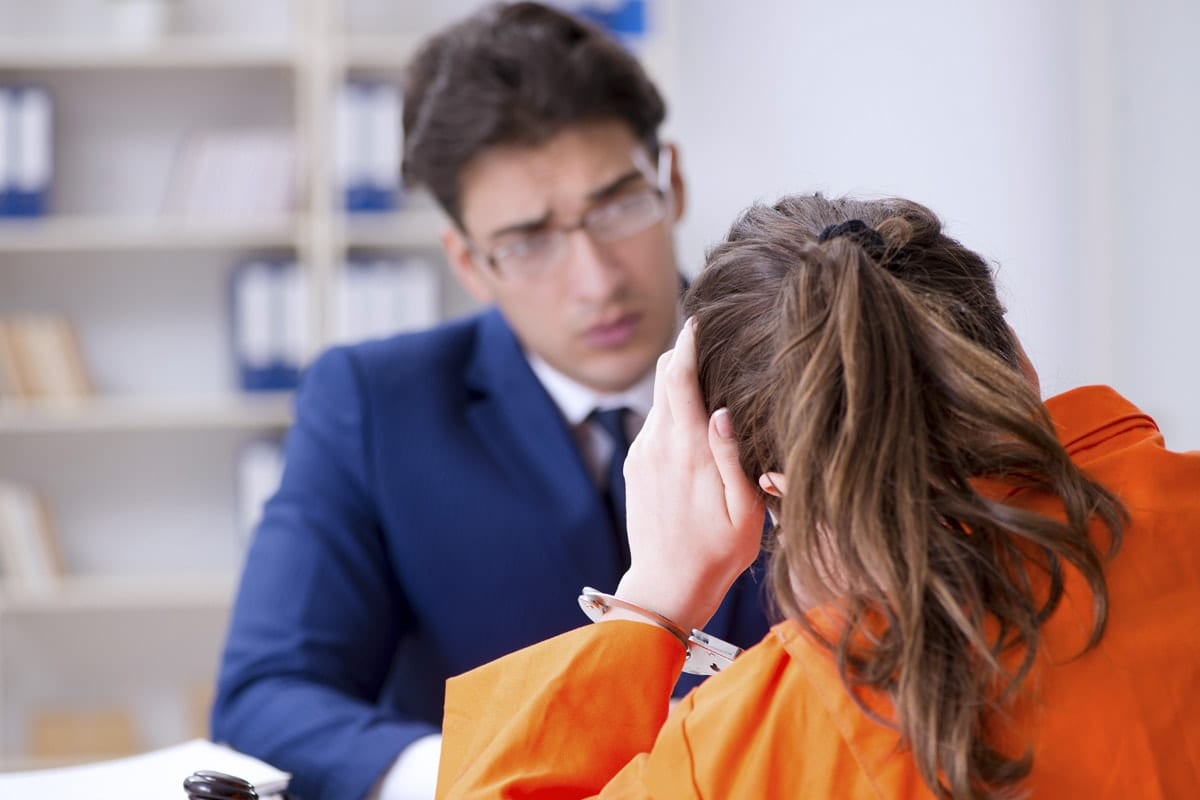Drug Trafficking charges in Florida can be confusing to understand. The purpose of Florida’s drug trafficking statute is noble —to target high-level drug dealers or traffickers and to make sure that these people have very serious penalties above and beyond what somebody gets for being a normal street-level dealer.

As a result, drug trafficking charges in Florida can lead to minimum penalties that are 25, 30, or even more years in prison. The statute is that tough.
The problem is that the vast majority of drug trafficking charges are really just simple small-level deals or even worse, just possession charges. We see almost daily people who are the farthest thing from a high-level drug dealer that you can imagine facing drug trafficking charges with unbelievably enhanced penalties.
Below we’ll talk about some of the most common drug trafficking charges, common penalties, some of the unique defenses and issues that we face with drug trafficking charges in Florida, and how we handle them.
Florida Drug Trafficking Charges
Some of the most commonly charged crimes involving drug trafficking in Florida are the following.
Trafficking in cannabis: under Florida law, trafficking in cannabis or marijuana happens when a person knowingly possesses, sells, purges, manufactures, or delivers either 25 pounds of cannabis or 300 or more marijuana plants.
The minimum penalties somebody faces for being convicted of cannabis trafficking depends on the amount. If a person gets busted with 25 to 2,000 pounds of cannabis or 300 to 2,000 cannabis plants, that person can face a minimum of three years in prison and a $25,000 fine.
If a person gets busted with 2,000 to 9,999 pounds of cannabis or 2,000 to 9,999 marijuana plants, then that person will be looking at a seven-year minimum prison stay and a $50,000 fine.
Finally, if a person gets busted with 10,000 pounds or more of marijuana or 10,000 or more marijuana plants then that person is looking at a minimum mandatory 15 years in prison and a $200,000 fine.
What’s important to note is that these are minimum sentencing requirements.
The success of any legal matter depends on the unique circumstances of each case, therefore, we cannot guarantee particular results for future clients.
This means if the state’s attorney gets the conviction or you plead guilty to the charge as is, then the judge has no choice but to sentence you to these minimum prison terms unless the state attorney’s agrees to do something different. This is why a defense attorney must carefully handle drug trafficking charges.
Trafficking in cocaine: the crime of trafficking in cocaine in Florida is committed when someone knowingly possesses, sells, purchases, manufactures, delivers, or transports 28 grams or more of any mixture containing cocaine.
The penalties for trafficking in cocaine are much like marijuana, and based upon the amount that is being trafficked.
If a person is trafficking 28 to 99 grams of cocaine, then that person is looking at a minimum mandatory three years in prison and a $50,000 fine.
Worse, the same person is caught trafficking 200 to 399 grams of cocaine, then that person is looking at a minimum mandatory seven years in prison and a $100,000 fine.
And even worse, if a person is caught trafficking 400 grams to 249 kilograms of cocaine, then that person is looking at 15 years in prison and a $250,000 fine.
Trafficking in hydrocodone: under Florida law, you are guilty of trafficking in hydrocodone if you knowingly possess, sell, purchase, manufacture, deliver, or transport 14 grams or more of any mixture containing hydrocodone.
Being caught trafficking 14 to 28 grams of hydrocodone can lead to a minimum mandatory sentence of three years in prison and a $50,000 fine.
Trafficking 28 to 50 grams of hydrocodone could result in seven years in prison and a $100,000 fine.
Trafficking 200 grams to 30 kilograms of hydrocodone results in 25 years in prison and a minimum $750,000 fine.
MDMA Trafficking: under Florida statute, the crime of trafficking in MDMA is committed when a person knowingly possesses, sells, purchases, manufactures, delivers, or transports 10 grams or more of any mixture containing MDMA.
If a person is caught trafficking less than 200 grams of MDMA, that person faces a minimum of three years in prison and a $50,000 fine.
For trafficking 200 to 400 grams of MDMA, there is a minimum of seven years in prison and a $100,000 fine.
For trafficking 400 grams to 30 kilograms of MDMA, there is a minimum of 15 years in prison and a $500,000 fine.
Trafficking in methamphetamine: under Florida statute, the crime of trafficking in methamphetamine happens when a person knowingly possesses, sells, purchases, manufactures, or delivers 14 grams or more of any mixture that contains meth.
If someone is caught trafficking 14 to 28 grams of meth, that person is looking at three years in prison and a $50,000 fine.
For trafficking 28 to 200 grams of meth, that person is looking at a minimum mandatory sentence of seven years in prison and a $100,000 fine.
If someone is caught trafficking 200 grams or more of meth, that person is looking at 15 years in prison and a $250,000 fine.
What If There Is A “Mixture” Of A Substance With Something Else (Like Aspirin In Hydrocodone Pills)?
A common question is what happens when there is a mixture of a substance like hydrocodone in a pill where the hydrocodone only makes a small portion of the pill and the rest of the pill is some other substance such as aspirin.
Are we able to isolate just the portion of the hydrocodone and remove it from the rest of the pill’s weight and use that in determining weight when it comes to trafficking charges?
For a while, this was a defense criminal defense attorneys were able to use.
By isolating just the hydrocodone component from the pill with expert testimony, we could show that the weight of the hydrocodone was really much less than the weight of the pill.
Unfortunately, the legislature removed that defense a few years ago. Now, we have to look at the entire weight of the pill when determining minimum mandatory sentences.

How To Defend A Drug Trafficking Charge
So the question becomes, what’s the best way to defend a person charged with drug trafficking when the penalties are so severe?
Insufficient evidence defense: the best way to defend a drug trafficking charge is to attack the actual evidence the state provides.
Remember the filter by which we analyze a criminal defense case? It’s the state’s burden to prove their case and all the elements of the charge beyond a reasonable doubt.
Knowing that the state has such a heightened burden enables us to seek out, exploit, and focus on specific elements of the crime the state can’t prove. If the state doesn’t have the evidence for a particular element of the crime, then we can attack that, bring it to the state’s attention, and often procure a reduction or dismissal of the charge.
In other cases if we need to take it to trial, we can use that as the highlight of the defense.
Challenge how the state procured its evidence: another prime effective strategy is to look at how the state gathered its evidence. If the state has gathered its evidence in an improper or illegal way, then we might be able to challenge how the state got it and ultimately get that evidence tossed out.
For example, if the state obtains medical records without the appropriate search warrant to prove their case we may be able to get those records tossed out for violation of HIPAA or otherwise not following the appropriate statute in subpoenaing medical records.
For another example, if a police officer gathered evidence by unreasonably or illegally searching a home or a doctor’s office without the right permission, we may be able to challenge the admissibility of that evidence under the Fourth Amendment.
Grill confidential informants: the last decade has seen a substantial increase in how often police officers use confidential informants or CIs. Confidential informants are usually snitches working with the police and helped them gather evidence against the person arrested for drug trafficking charges in Florida.
The unique thing about confidential informants is that the police will work hard to keep the identity of the CI private. But while the police want to keep the identity of the confidential informant private so that they can continue to use their informant, a person arrested for drug trafficking charges in Florida has an absolute right to confront their accusers under the Sixth Amendment.
That means that by identifying the CI, potentially “burning” the undercover nature of the CI, we can often leverage the situation in a way that helps our clients. In some cases the state’s attorney will like their CI so much that he/she is willing to give us a better deal in exchange for us not burning the CI.
In other cases a jury of regular people is often offended and aghast at how horrible and unfair the situation is when a confidential informant is involved.
We can use this to create sympathy for our client’s case.
Entrapment defense: entrapment occurs when the government or a confidential informant puts unnecessary pressure on a person to commit a crime that he/she might not otherwise commit.
This can be an especially effective defense when the government agent (undercover cop) is tag-teaming with a confidential informant and just putting massive amounts of pressure on somebody to traffic drugs.
An entrapment defense is an absolute defense. It’s as if you’re admitting that yes you committed the crime, but saying there is a legal justification for the crime. Entrapment defenses are effective, but they are only applicable in a very small number of cases and in very specific scenarios.
Request an amendment of the charge: while drug trafficking charges in Florida are massive, the state has the discretion to amend the charges in the right situation. If they change the nature of the charges to something lesser before there is a resolution to the case, then the lesser charges are the ones that carry the penalties.
For example, in a situation where a person is charged with drug trafficking when it should be a possession charge, with the right negotiation we can often get the state’s attorney to reduce it to a simple possession charge. This could be the difference between a three-year minimum stay in prison and being on probation.
This is when plea negotiations become very, very important.
Substantial assistance: another method of staying out of prison and avoiding harsh mandatory penalties is, through your attorney, to offer law enforcement “substantial assistance.”
The gist of this is if you have something substantial that can help law enforcement and you give it to them, then the state’s attorney or judge can agree to reduce the penalties that you might otherwise experience.
In some cases this can be sitting down with a detective in a closed room and giving the detective information about the misdeeds of another.
This is most effective in a case where somebody’s not really a high-level trafficker but some sort of mid-level street dealer, and that person has the ability to give information about a true trafficker up the chain.
Note that while this can be effective when properly done in the defense of a criminal case, the last thing that a person wants to do is start giving up information without making sure it’s part of a negotiated process to get a better resolution at the end of the day. Always negotiate this with your drug crime defense attorney.